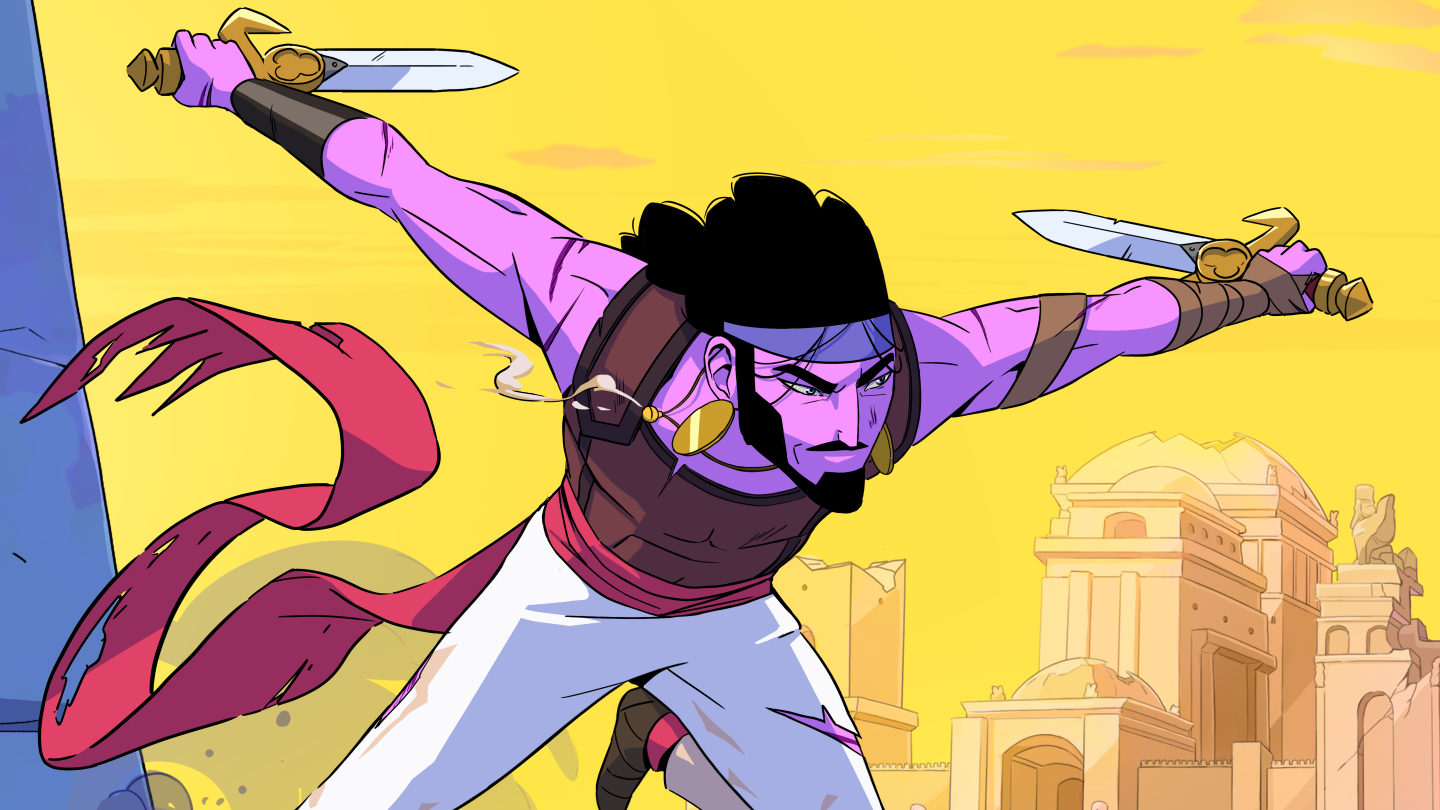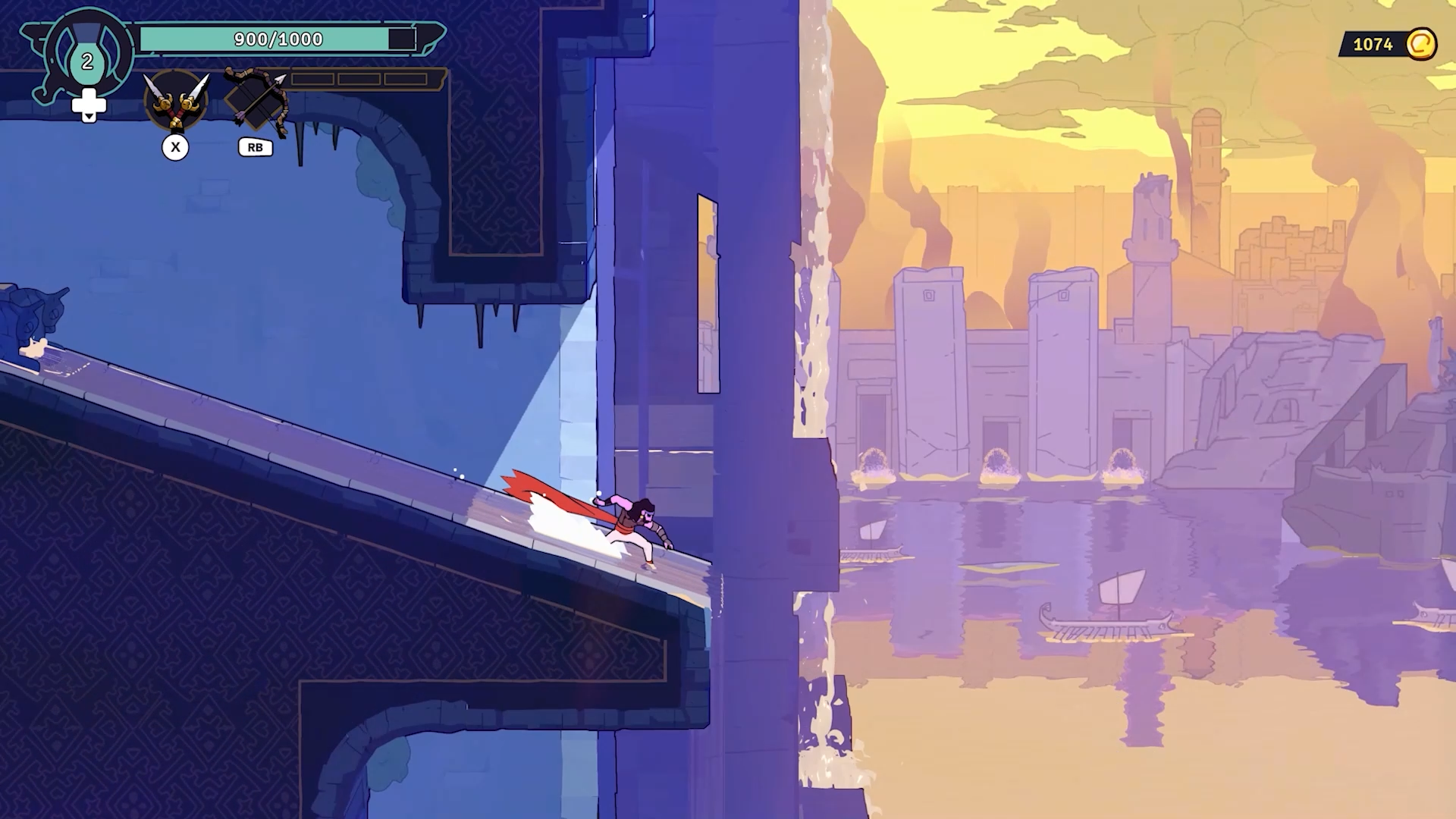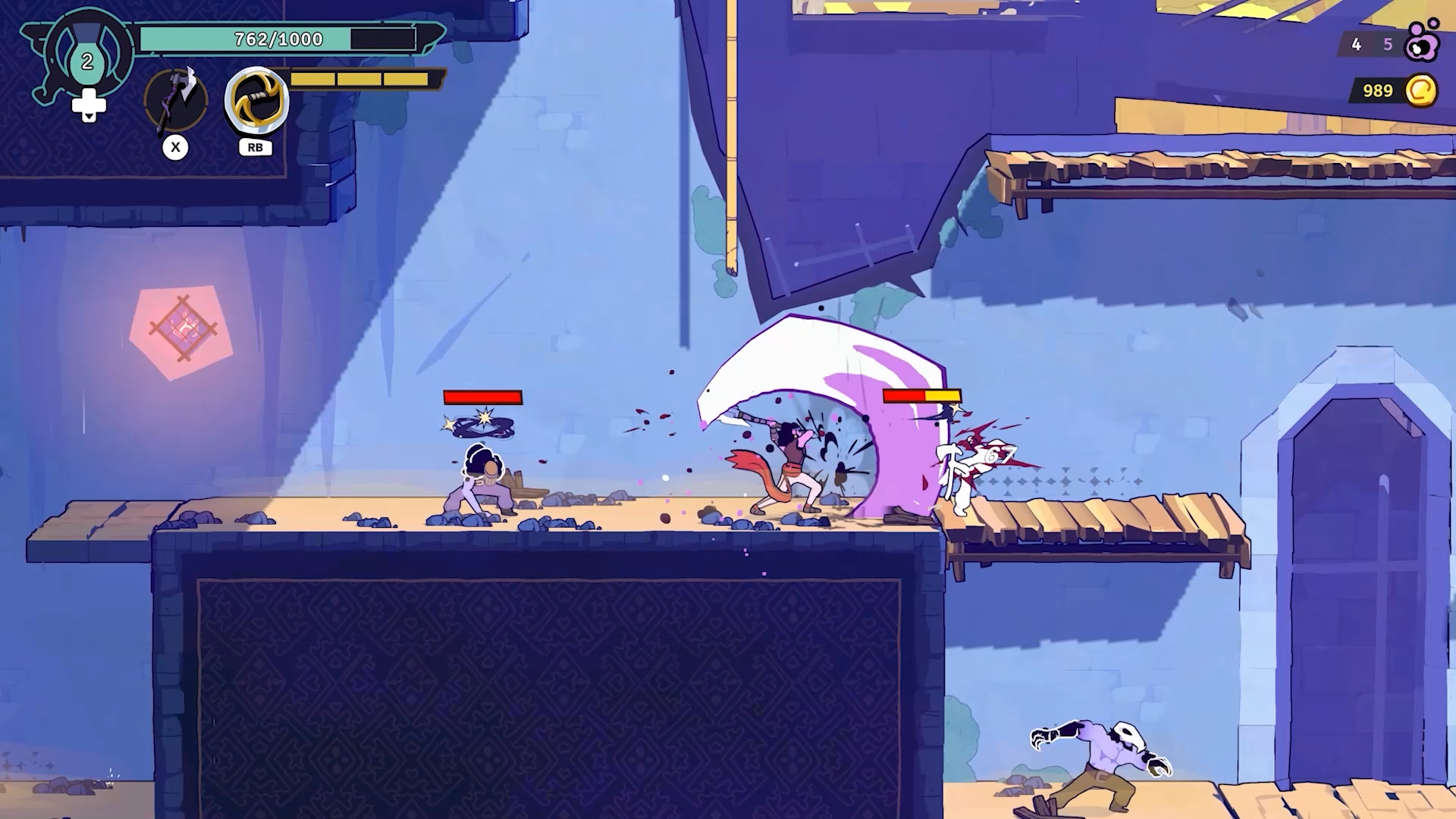
Sign up for breaking news, reviews, opinion, top tech deals, and more.
You are now subscribed
Your newsletter sign-up was successful
The Rogue Prince of Persia is the latest game from Dead Cells developer Evil Empire, and being a roguelite, it’s hard to imagine it in a safer pair of hands. Recently, I had half an hour with the upcoming Ubisoft game at a digital event, and came away feeling like the Prince of Persia franchise has another winner on its hands much like Prince of Persia: The Lost Crown was earlier this year.
The ‘fight, die, repeat’ format of roguelite games is a good fit for the series, to the point where I’m quite surprised a project like The Rogue Prince of Persia hadn’t released any sooner. While my hands-on session was brief, I can see its blend of combat, slick platforming, and roguelite elements combining to form something very special indeed.
Wake up, Hun

In The Rogue Prince of Persia, you play as the titular prince, who commands powers of immortality via a magical amulet that whisks him back to his last place of safety should he kick the bucket. It’s a rather convenient, but ultimately smart way of justifying the permadeath cycle in a story context.
The amulet isn’t something the prince has just stumbled upon, however; it’s something he’s had most of his life. However, being protected from the threat of death has consequences. The prince has grown reckless in his immunity from death, leading to dire ramifications for his homeland as the amulet’s power has invited a Hun invasion that’s brought the country to ruin.
Now, the prince must leverage his powers to, essentially, reverse the harrowing fate he’s brought upon his people. It’s a fantastic setup that accomplishes two things. For one, the stakes are remarkably high. Secondly, it’s a catastrophe all of our main character’s own making which is incredibly compelling, and I’m very keen to see how the narrative unfolds as the prince fights back and accepts his wrongdoing.
Platforms of Persia

If you’re at all familiar with Dead Cells, then you’ll likely immediately gel with The Rogue Prince of Persia’s gameplay. Combat is incredibly fast-paced and affords you a ton of options and environmental interaction. The prince can attack in combos as well as perform powerful charged attacks, executed when you hold down a button.
The moveset and speed of attacks differ with weapon types. For example, the prince’s standard dual blades (equipped at the game’s start) can hit multiple enemies at once with a forward lunge. The spear can be thrown to pierce foes, while a chunkier greatsword is excellent for deleting shielded enemies.
Sign up for breaking news, reviews, opinion, top tech deals, and more.
Using the environment to your advantage is paramount to success in The Rogue Prince of Persia, too. The prince can kick enemies into walls, briefly stunning them. And if you kick them off a ledge, the fall damage will often take care of them for you.
This doesn’t apply to the prince himself, though. He’s incredibly acrobatic, as you might expect from the series’ protagonists. The Rogue Prince of Persia elegantly mixes platforming with its level traversal. You’re able to not only clamber up walls in the foreground but also run across background walls to get to platforms that a regular jump can’t reach. I even stumbled across several tough platforming challenges that led to a sweet reward.
One particular gripe I had with platforming is that it can be difficult to discern what kinds of surfaces are below the player. For example, I would often drop off a ledge thinking I’d be safe, only to be met by a spiked pit, causing me to take a significant amount of damage. I hope this is tweaked in the final release, perhaps to at least warn players that a surface they’re dropping down to may not be entirely safe.
In the loop

As for progression, there wasn’t much to glean from the demo. However, certain sidequests can be found and those persist across runs. You’ll also get to forge new weapon types and take those with you on a new run a la Hades.
During a run, you can pick up powerful perks that’ll give you an edge in combat, too. Up to four of these can be equipped, and they range from applying poisonous gas clouds onto enemies to setting them aflame when kicked into a wall. The selection in the demo was quite limited - I saw a handful of the same perks across three separate runs - but what’s here is a robust base for the game to build on and I imagine there will be plenty of other perks to unearth as it progresses.
Such extras would make a huge difference when it comes to boss fights, as the first major boss I encountered proved to be immensely difficult. Granted, most roguelite bosses are when you’re just starting out. However, this one had an insurmountable amount of health and tricky attack patterns that stopped me from progressing any further. Thankfully, it didn’t take any longer than 5-10 minutes to return to that point to try again, so I’m expecting The Rogue Prince of Persia to be a pretty snappy game.
On top of that, it’s one that absolutely shines in the presentation department. It’s a simple, readable visual style, but there's a fantastic atmosphere brought on by its vibrant colors, slick animations, and a marvelous soundtrack that mixes a traditional Middle Eastern sound with hard-hitting, electronic percussion. It seems to be fairly dynamic, too, upping the intensity during combat and mellowing out in moments of exploration.
The Rogue Prince of Persia is launching in early access on May 14 on Steam, and you can wishlist the game right now. Evil Empire and Ubisoft plan to support and develop the game based on community feedback, so the final product will likely be more fleshed out than what’s available in its early access launch.
You might also like...
- Dragon’s Dogma 2 review - Arisen again
- The best PC controllers you can buy now
- Best free Steam games

Rhys is TRG's Hardware Editor, and has been part of the TechRadar team for over four years. Particularly passionate about high-quality third-party controllers and headsets, Rhys strives to provide easy-to-read, informative coverage on gaming hardware of all kinds. As for the games themselves, Rhys is especially keen on fighting and racing games, as well as soulslikes and RPGs.